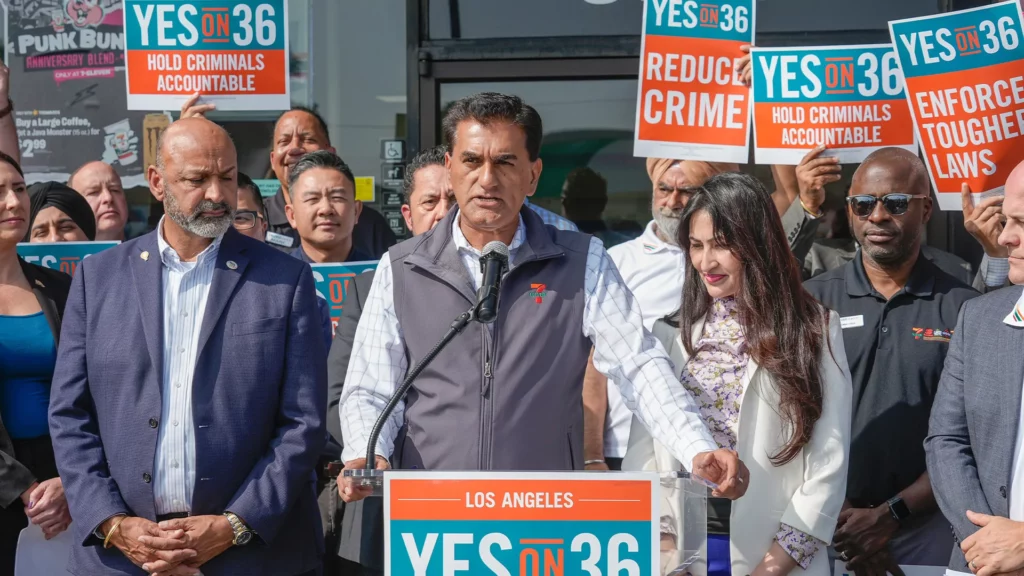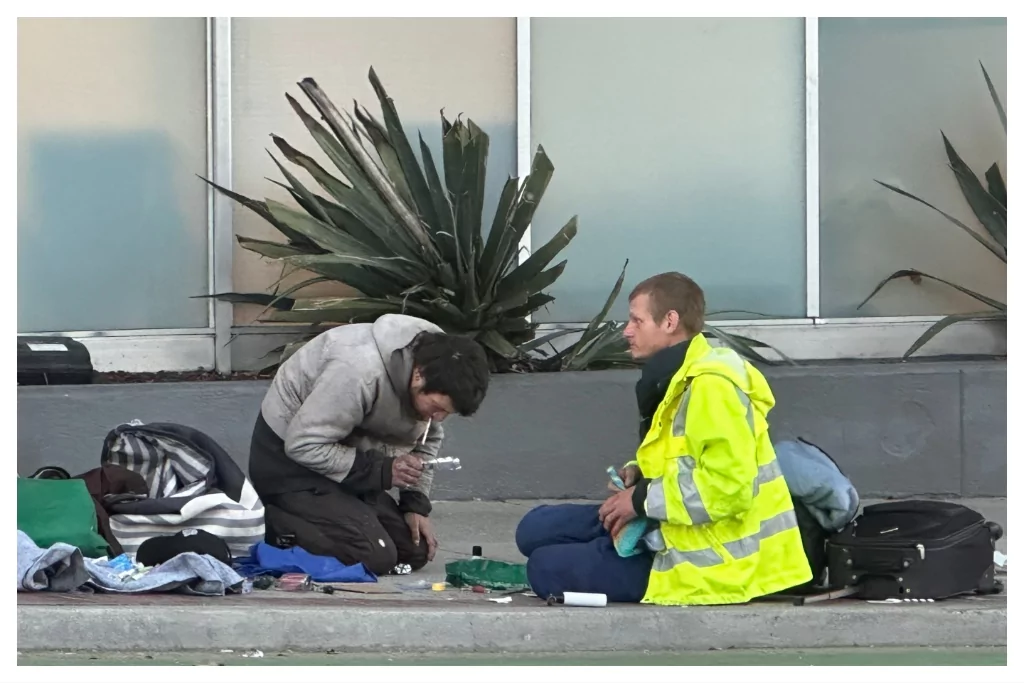
Californians on Tuesday overwhelmingly voted for Proposition 36, a ballot measure that strengthens penalties for people who have repeatedly been convicted of shoplifting or caught using and dealing hard drugs like fentanyl, a synthetic opioid.
The measure also gives judges the authority to order people with multiple drug charges into rehab and undoes some of the changes the state made 10 years ago through Proposition 47.

Supporters of Proposition 36, which include major players in the retail industry like Walmart and Home Depot, argued that tougher consequences were the only way to close existing loopholes that have made it easier for shoplifters and drug pushers to skirt the law.
2024 ELECTIONS LATEST NEWS: CAMPAIGN UPDATES, POLLS, AND LIVE RESULTS
There has been an explosion in retail theft across the state that has caused stores to raise prices, lock up items, and in multiple cases, close up shop. Proposition 36 increases penalties for smash-and-grab crimes when three or more people act together to commit theft. It also allows prosecutors to file felony charges if someone caught has two or more prior theft convictions.
“California needs Prop. 36’s tougher laws against smash-and-grab thefts so we can keep small businesses open in every community,” Robert Rivinius, executive director of the Family Business Association of California, said.
Opponents, including Gov. Gavin Newsom (D-CA), Democratic state leaders, and some human rights groups, argued that Proposition 36 is too expensive, offers false hope, and isn’t a real fix.
According to the state Legislative Analyst’s Office, the ballot measure would increase state criminal justice costs “likely ranging from several tens of millions of dollars to the low hundreds of millions of dollars each year.”
Critics also claimed it would disproportionately imprison poor people and those with substance abuse issues rather than target ringleaders who take advantage of disenfranchised groups and hire them to steal goods or sell drugs.
“This is a one-size-fits-all prison-first approach,” Diana Becton, district attorney of Contra Costa County said. “It will lock up people who are not a danger, slash desperately needed money from proven crime prevention and treatment programs, and cost taxpayers hundreds of millions more on prisons.”
Critics also called it “a gross overreach that brings back 1980s ‘drug war’ style tactics that packed our state prisons with people convicted of low-level drug offenses, harming public safety, and damaging families and communities.”
But the vast majority of voters said they were fed up with crime and drugs and need a change.
California has suffered for a decade following the passage of Proposition 47, a referendum that critics claim effectively gave shoplifters and drug addicts the green light to commit crimes and steal merchandise as long as what they took was less than $950 in value. The decision to downgrade theft of property valued below the arbitrary figure from felony to misdemeanor, together with selective enforcement that focused on more serious crimes, resulted in a chaotic and lawless landmine that has ripped apart families, hurt businesses, and clobbered tourism.
Proposition 47 has been widely viewed as a complete catastrophe. It was supported by the state Democratic Party, championed by the American Civil Liberties Union, and passed by a wide margin in 2014. Offenders who repeatedly stole goods were usually given a slap on the wrist, in most cases, a ticket. They almost always avoided jail time.
“There was no incentive to get clean,” said Tom Wolf, a married father of two who went from a good-paying job with the city to becoming addicted to drugs, homeless, and almost losing his life. Wolf told the Washington Examiner that the best thing that happened to him was finally being sent to jail for three months. He was forced to get clean and given an opportunity to enter a drug treatment facility, which he took.

Wolf, who strongly backed Proposition 36, said stiffer penalties force accountability and go toward ending the loop of being arrested and released back on the street just a few hours later. Wolf was arrested six times before he saw more than a day or two of jail time.
Under Proposition 36, a new treatment-focused court will also be created that processes some drug possession crimes.
People with two or more prior convictions for drug-related offenses have the option of going to drug court and participating in and completing drug and mental health treatment instead of county jail. Those who successfully complete their treatment can have their charge fully expunged.
The court will be required to warn people convicted of selling or providing illegal drugs to others that they can be charged with murder if they keep selling drugs and the person they sell the drugs to overdoses and dies.
CLICK HERE TO READ MORE FROM THE WASHINGTON EXAMINER
The prevalence of fentanyl has had deadly consequences in the state, particularly in San Francisco. Last year surpassed 2020 as the deadliest on record for overdose deaths in the city, and 2024 is shaping up to be just as bad.
The state’s rise in drug addiction and mental illness has also fueled its homelessness crisis.






